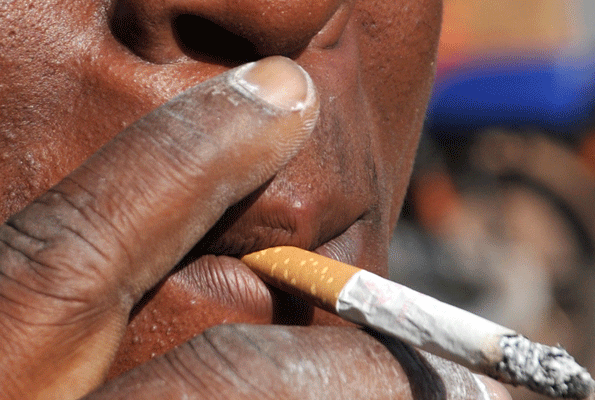By Agatha Ayebazibwe
Friday, July 13
In Summary
The group says treating diseases caused by tobacco costs more than the revenue the crop brings.
Anti-tobacco advocates have called for a total ban of tobacco growing and manufacturing in Uganda, saying the money collected in tax revenue every year is not enough to treat people with tobacco-related illnesses.
The group under the Centre for Tobacco Control in Africa while meeting in Kampala, said tobacco benefits only tobacco companies and its money does not help ordinary Ugandans.
The administrator of the Centre for Tobacco Control in Africa, Dr Sheila Ndyanabangyi, said all the money got from tobacco companies ends up treating people who get lung cancer, which is caused by tobacco.

Growing effects
“Money comes through Uganda Revenue Authority to the Ministry of Finance and economic development, which then passes it through to the public hospitals, national medical stores and the Uganda cancer institute in form of drugs for treatment of the increasing number of patients suffering tobacco-related diseases,” Dr Ndyanabangyi said.
According to Dr Ahmed Ogwal, the regional WHO adviser on tobacco use, the list of diseases originating from smoking either directly or indirectly has been growing over time to include cancer of the bladder, esophagus, larynx, lung, mouth, and throat, while smoking also has been linked to chronic lung disease, chronic heart and cardiovascular disease as well as reproductive problems.
A recent study by Mr Richard Carmona, a surgeon in the US, showed that tobacco smoking causes diseases such as acute myeloid leukemia and cancers of the cervix, kidney, pancreas and stomach; abdominal aortic aneurysm, cataracts, periodontitis and pneumonia which were previously not linked to smoking.
The anti-tobacco supporters are appealing to government to pass laws that should put a total ban on all tobacco farming and selling in the country, saying the burden of treating people with these diseases lies with the government, which spends tax payers’ money on treatment of diseases which are being legally manufactured in the country every day.
They revealed that an estimated 30,500 people in Uganda die of smoke-related infections every year.
Many more, according to the survey, die due to health complications accruing from passive smoking.
While there is no exact figure of the number of people who die of tobacco-related illnesses in Uganda, what is clear is that government spends billions in treatment annually.
The Uganda Cancer Institute’s 2012/13 Budget stands at Shs103 billion, while the amount of money in terms of revenue collected from tobacco industries in Uganda every year amounts to Shs68 billion, which the anti-tobacco crusaders say is way too little to treat the diseases they help to create.
The spokesperson of British American Tobacco, Mr Solomon Muyita, however, said the tobacco industry contributes largely to the economy of Uganda in terms of foreign exchange, tax revenue and employs over one million Ugandans.
“Apart from opposing tobacco growing, they are not doing anything to contribute to the economy unlike BAT which contributes $70m.”
http://www.monitor.co.ug/News/National/Anti+tobacco+activists+want+growing+banned/-/688334/1452516/-/ts12suz/-/index.html


